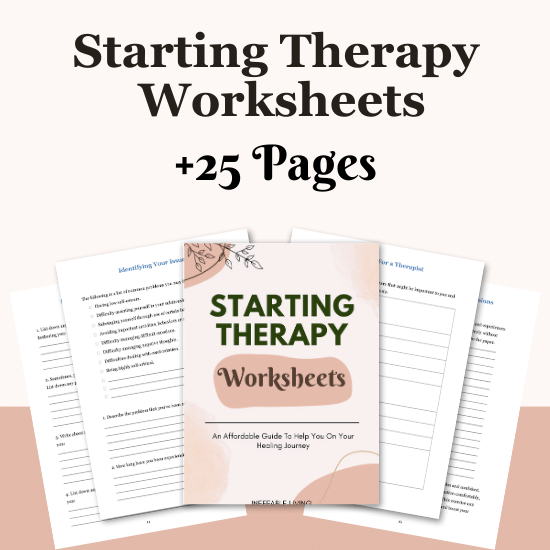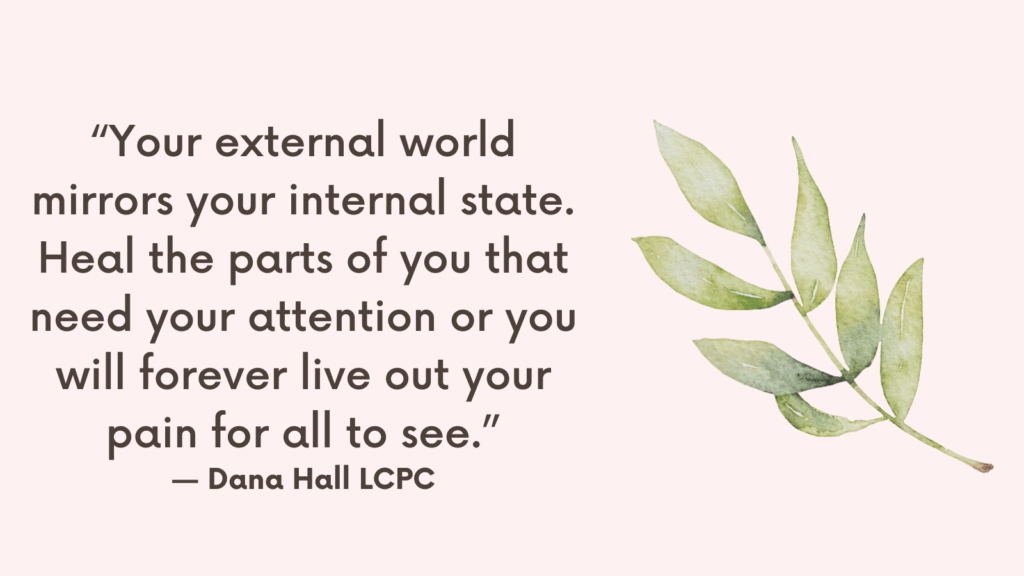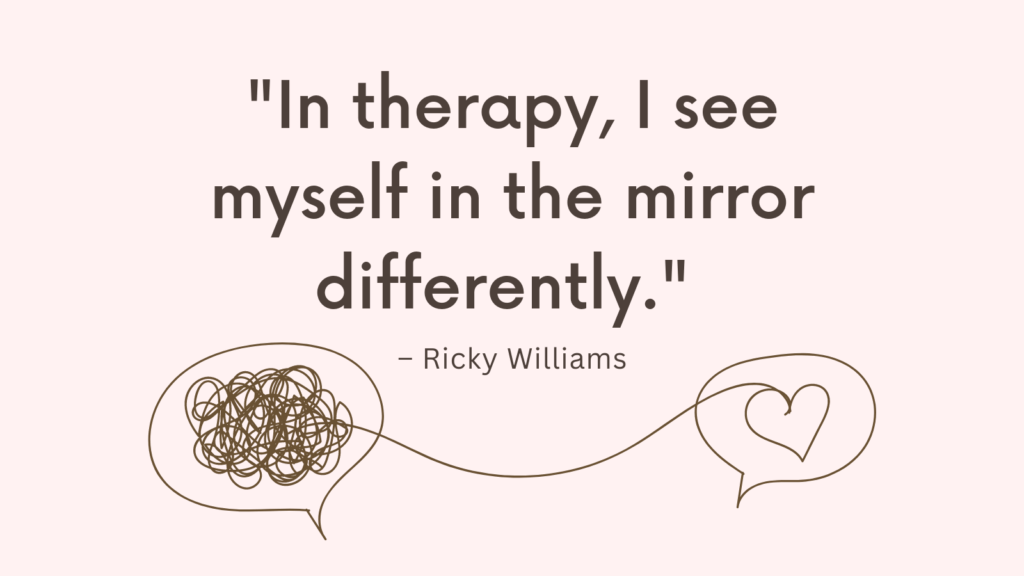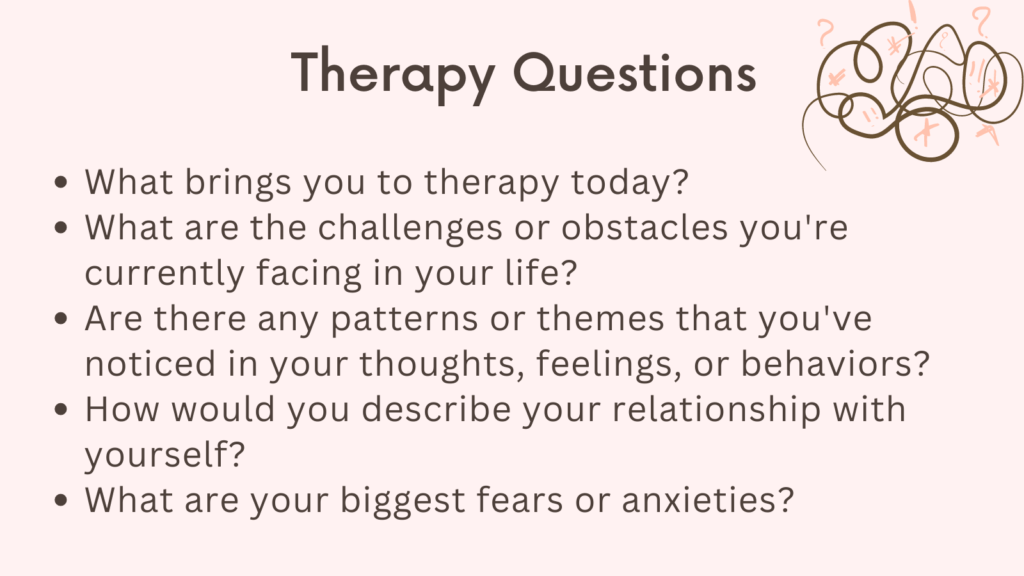Starting therapy is often portrayed as a brave, healing decision — and it is. But what people don’t always talk about is how complicated that beginning can feel. You’re sitting across from a stranger, talking about things you’ve barely admitted to yourself. You want to get better, but you might not even know what “better” looks like yet. If you’re thinking of starting therapy or just took the leap, here are the lesser-known truths that might help you feel less alone.
What No One Tells You About Starting Therapy
1. You Might Feel Worse Before You Feel Better
Therapy stirs things up. You’re digging into pain you’ve tucked away. That discomfort isn’t a sign it’s not working — it’s often a sign that healing is beginning.
2. It Takes Time to Feel Safe
You may not instantly open up — and that’s okay. Trust is earned over sessions, not assumed on day one. Give yourself permission to ease in slowly.
3. You Won’t Always Know What to Say
There might be awkward silences, rambles, or moments you just sit and stare. That’s normal. Therapy isn’t a performance — it’s a process.
4. Not Every Therapist Is the Right Fit
It’s okay if your first therapist isn’t the one. This is a relationship — and like any relationship, fit matters. Switching isn’t quitting. It’s self-respect.
Related: Best 40 Therapeutic Journal Prompts
5. You May Question If You Deserve Therapy
Many people worry they’re “not hurting enough” to need help. But therapy isn’t just for crises — it’s for growth, clarity, and care. Your struggles are valid.
6. It’s Work — Emotional, Mental, and Sometimes Physical
Therapy can be exhausting. You may feel drained after sessions. That’s not weakness — that’s your brain and heart doing hard work.
7. Some Weeks, It Might Feel Pointless
Not every session will feel groundbreaking. Sometimes you’ll wonder if it’s helping at all. Trust the process. Progress often shows up quietly and later.
8. You’ll Discover Things You Didn’t Know You Were Carrying
Therapy can uncover beliefs, patterns, or wounds you didn’t realize were affecting you. This awareness can be jarring — and freeing.
9. It’s Okay to Cry — Or Not Cry at All
Tears don’t mean failure. Neither does staying dry-eyed. Therapy is about truth, not theatrics. However your emotions show up is valid.
10. You May Start Showing Up Differently in Your Life
As you grow, you might set more boundaries, question old dynamics, or outgrow relationships. That shift can be empowering — and sometimes lonely.
11. Your Therapist Isn’t Going to “Fix” You
They’re not there to hand you all the answers. They’re there to help you find them — through reflection, guidance, and presence.
12. You Might Miss Your Old Coping Mechanisms
Even harmful patterns served a purpose once. Letting them go can feel like a loss. Therapy helps you mourn them while building healthier tools.
Related: How to Overcome Fear of Therapy?
13. Progress Isn’t Always Linear
You might feel great one week and overwhelmed the next. That doesn’t mean you’re back at square one. Healing loops — it doesn’t just climb.
14. You Can Say Anything — Even If It Feels “Weird”
Therapists have heard it all. Nothing you say will shock them. In fact, your honesty is the key that opens the door to change.
15. It’s One of the Greatest Gifts You Can Give Yourself
Therapy isn’t self-indulgent. It’s self-honoring. Choosing to look inward and heal is courageous — and it ripples outward into every part of your life.
Related: How to Manage Therapy Hangovers?
Why Starting Therapy Feels So Emotionally Complex
Even when you’re ready for help, starting therapy can feel overwhelming or intimidating. That’s not because therapy is wrong for you—it’s because:
- You’re confronting emotions you’ve spent years avoiding
- You’re unsure how much to share or where to begin
- You fear being judged, misunderstood, or labeled
- It may feel like admitting “something is wrong”
- You’re stepping into the unknown without a script or guarantees
Therapy invites vulnerability—and that alone can feel like a threat to your nervous system.
How to Overcome the Fear of Starting Therapy
How to Overcome the Fear of Starting Therapy
1. Acknowledge the Fear Without Judging It
Say it plainly: “I’m scared to start therapy.” That honesty is a strength, not a weakness. Fear often shows up when you’re doing something meaningful. Let it be there without letting it lead.
2. Name What You’re Actually Afraid Of
Is it fear of being judged? Of uncovering pain? Of not being “bad enough” to need help? Pinpointing the fear gives it form — and once it has form, it’s easier to face.
3. Remind Yourself: Therapy Is Not a Test
You’re not being evaluated or graded. There’s no right way to begin. You don’t have to be articulate, prepared, or emotionally “ready.” Just showing up is enough.
4. Start With Low-Stakes Research
You don’t have to commit right away. Just read a few bios. Check out therapist websites. Get familiar with what to expect. Information soothes fear by shrinking the unknown.
5. Write Out What You Want From Therapy
Even if you’re unsure, jot down what you hope to gain — clarity, healing, support, direction. This simple exercise turns vague anxiety into a grounded intention.
6. Normalize the Nerves
You’re not the only one who’s felt shaky before a first session. Most people feel awkward, unsure, or nervous. And most therapists expect that — and know how to meet you where you are.
Related: Second-Hand Therapy: When Someone Else’s Healing Helps You Grow Too
7. Imagine the Relief, Not Just the Risk
What if therapy actually helped? What if it brought you peace, insight, or self-acceptance? Let yourself picture that version of you — the one on the other side of the fear.
8. Talk to Someone Who’s Been to Therapy
If you have a trusted friend who’s done therapy, ask what their first session was like. Sometimes hearing someone else’s story makes the path feel more doable.
9. Let Yourself Just Try One Session
You don’t have to sign up for months. Just try one. One hour. One conversation. You’re allowed to test it out — and decide how you feel afterward.
10. Let the Fear Come With You
You don’t have to be fearless to start. You just have to be willing. Bring your fear to therapy — let it have a seat. And then let healing begin anyway.
Related: What To Talk To Therapist About: Top 35 Topics

Conclusion
Starting therapy isn’t just about solving problems. It’s about coming home to yourself — slowly, messily, and with so much grace. If you’re in that beginning space, be proud. You’re doing the work. And that’s something no one can take away from you.



